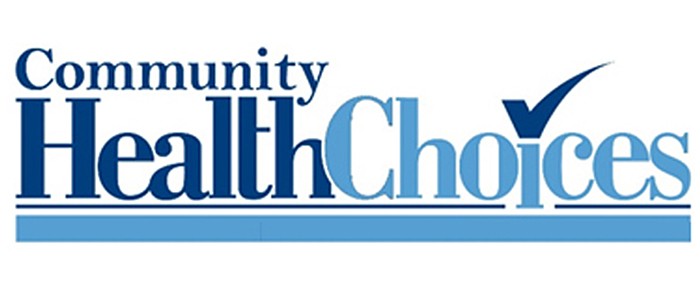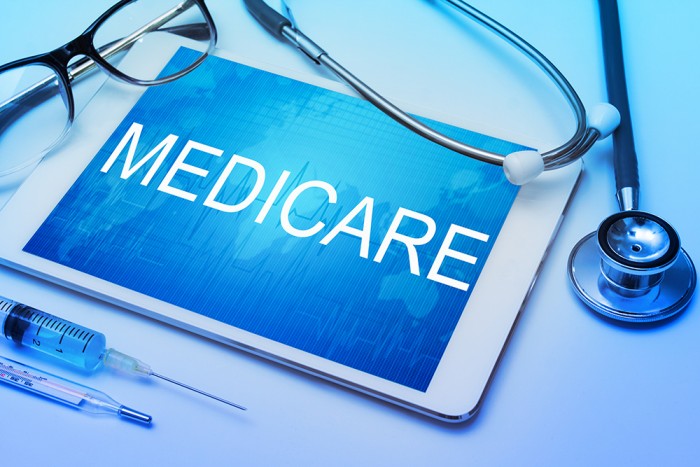The Department of Human Services’ (DHS) Office of Long-Term Living (OLTL) has updated the Frequently Asked Question (FAQ) document related to the transition to Community HealthChoices (CHC). The document, along with additional provider resources, is posted to the CHC web page.
Community HealthChoices Guidance on Service Plans and Service Authorizations
Today the Office of Long-Term Living (OLTL) issued guidance to service coordinators providing services to waiver participants residing in the Community HealthChoices (CHC) Southwest Zone (Zone 1) in their caseloads. The information was copied to providers of waiver services in Zone 1 as well.
The frequently asked questions includes the following statement: The current Service Authorization Form (SAF) that is in place remains effective through the continuity of care period.
OLTL has made available SCE update and resource documents regarding continuity of care, and HCSIS and SAMS service plan updates, for waiver participants in the Southwest Zone who are transitioning to CHC on January 1, 2018.
The following information is available:
- Letters describing actions that SCs can take to address service plan changes in HCSIS and SAMS.
- Flow-charts that illustrate the HCSIS or SAMS service plan changes.
- An EVS resource
OLTL notes that participants residing in Zones 2 through 5 enrolled in any other waiver (Attendant Care, Independence, or OBRA) will not have enrollments, services, or plans automatically end-dated at this time.
If you have any questions, or to request the attachments in alternate format, please call the OLTL Participant Helpline at 800-757-5042 or send an email.
DHS Guidance for Ordering, Referring and Prescribing
The Department of Human Services has been working in collaboration with Managed Care Organizations (MCOs), county oversight organizations, and RCPA regarding the concerns and challenges with implementing federal Ordering, Referring and Prescribing (ORP) requirements by the January 1, 2018 deadline. The Department of Human Services has informed RCPA of the following:
- The ORP requirements for Fee-for-Service continue to apply; i.e., allORP practitioners must be enrolled in the Pennsylvania Medical Assistance (MA) Program or the rendering provider will not be paid.
- In the HealthChoices managed care delivery system, if a rendering network provider submits a claim to an MCO with the National Provider Identifier (NPI) information that results in edits identifying that the non-networkORP is not enrolled in MA, the claim can be paid. However, if the non-MA enrolled ORP has a high volume of claims, the MCO will work with the network provider and non-MA enrolled ORP to have them enroll in MA or work to transition the member to an enrolled MA provider.
Contact your contracting BH-MCO for additional information.
Pennsylvania Link to Community Care
The Wolf Administration has launched the Pennsylvania Link to Community Care website, which connects older Pennsylvanians and individuals with a disability or behavioral health need to services and supports available in their community.
The website provides users with a wide variety of resources, including a home care directory and an information referral tool. It is a collaboration of the departments of Aging (PDA) and Human Services (DHS), and is an extension of PDA’s Aging and Disability Resource call center. By providing assistance online, the initiative further enhances the Commonwealth’s efforts to help Pennsylvanians locate and best utilize services at the local level.
The site features 12 service and support categories: Advocacy, Behavioral Health, Employment, Finance, Health Care, Housing, In-Home Services, Legal, Meals, Protection from Abuse, Support Groups, and Transportation.
Users can find information about organizations, services, and programs within these categories. A major component to the site is the home care directory, which connects individuals to in-home services available in their counties. In-home service providers appearing on the searchable directory may offer personal care, assistance with activities of daily living, companionship services, respite care, and/or habilitation services.
If you are an in-home service provider licensed by the Pennsylvania Department of Health, and would like to appear on the home care directory, you may submit your information by navigating to the footer of the site and selecting “Apply.”
In addition to the home care directory, another major feature of the website is the information referral tool. This tool guides users through a series of questions and then provides a list of resources based on their specific needs.
Moving forward, the departments of Aging and Human Services will continue to enhance the website using data and feedback from users, and expand the resources and information provided through the site. This includes working with your organization and other stakeholders to increase the number of options appearing within each category. Read the press release here.
RCPA’s Melissa Dehoff Elected TBI Advisory Board Chair
Congratulations to RCPA Director of Rehabilitation Services, Melissa Dehoff, for being elected Chair of the TBI Advisory Board! Also, RCPA congratulates member Bridget Lowery, of Main Line Rehabilitation Associates, for being chosen as Vice Chair of the advisory board!
Executive Order to Review State Licensure Board Requirements & Processes
Executive Order to Review State Licensure Board Requirements & Processes
In the November 11, 2017 Pennsylvania Bulletin, Governor Wolf issued an Executive Order (No. 2017-03) that directs the Commissioner of Professional and Occupational Affairs within the Department of State to conduct a review of the State Professional and Occupational Licensure board requirements and processes. This includes a comprehensive review of the processes, fees, training, and continuing education requirements and prepared report for each type of professional and occupational license. The report is to include: training requirements; licensing, registration, and renewal fees; continuing education requirements; and any other requirements described within the executive order. The report is to also include information regarding the number of other states which require a license for each professional or occupational license, the national and regional averages for training requirements, fees, and continuing education requirements.
The Commissioner has been given the authority to establish an advisory group to assist with the research, data collection, and formatting of the reports, and any other function the Commissioner deems necessary. The advisory group shall be composed of members chosen by the Commissioner from the professional Boards and Commissions, Bureau of Professional and Occupational Affairs (BPOA) staff, and any other persons the Commissioner deems necessary. The advisory group must be established within 30 days from the effective date of this executive order. Additional details regarding the report are provided in the bulletin.
The report is due to the Governor, the Secretary of Policy and Planning, and the Secretary of the Commonwealth no later than 180 days from the establishment of the advisory group or 210 days from the effective date of this executive order, whichever is sooner.
Some of the boards impacted by this executive order include: State Board of Physical Therapy, State Board of Speech–Language Pathology and Audiology, the State Board of Medicine, the State Board of Nursing, the State Board of Occupational Therapy, etc.
The executive order is effective immediately.
CMS Releases CY 2018 Updates to Quality Payment Program
The Centers for Medicare and Medicaid Services (CMS) released the calendar year (CY) 2018 updates to the Quality Payment Program (QPP) via a final rule with comment period.
Established by the Medicare Access and CHIP Reauthorization Act of 2015 (MACRA), the QPP has the goal to incentivize physicians and other eligible clinicians by rewarding value and outcomes through either the Merit-based Incentive Payment System (MIPS) or Advanced Alternative Payment Models (APMs).
Some of the provisions contained in the final rule include:
- Weighting the MIPS cost performance category to 10 percent of total MIPS final score, and the Quality performance category to 50 percent;
- Raising the MIPS performance threshold to 15 points in Year 2 (from 3 points in the transition year);
- Awarding up to 5 bonus points on MIPS final score for treatment of complex patients;
- Adding 5 bonus points to the MIPS final scores of small practices;
- Adding Virtual Groups as a participation option for MIPS;
- Issuing an interim final rule with comment period for extreme and uncontrollable circumstances where clinicians can be automatically exempt from these categories in the transition year without submitting a hardship exception application if they have been affected by the hurricanes that occurred during the 2017 MIPS performance period;
- Providing more detail on how eligible clinicians participating in selected APMs (known as MIPS APMs) will be assessed under the APM scoring standard; and
- Creating additional flexibilities to allow clinicians to be successful under the All Payer Combination Option, which will be available beginning in performance year 2019.
The final rule will be published in the November 16, 2017 Federal Register, with comments due by January 1, 2018.
Additional information is available in a fact sheet and an Executive Summary document. In addition, CMS will conduct an overview webinar on Tuesday, November 14, 2017, from 1:00 pm to 2:30 pm. To participate in this webinar, registration is required.
CY 2018 Medicare Physician Fee Schedule Final Rule
On November 3, 2017, the Centers for Medicare and Medicaid Services (CMS) released the calendar year (CY) 2018 Medicare Physician Fee Schedule final rule. The proposed rule updates payment policies, payment rates, and quality provisions for services with an overall payment update of .41 percent.
Some of the key provisions finalized in the rule include:
- Addition of several codes to the list of telehealth services, eliminating the required reporting of the telehealth modifier GT for professional claims in an effort to reduce administrative burden for practitioners, and separating payment for CPT code 99091, which describes certain remote patient monitoring, for 2018;
- Adoption of CPT codes for CY 2018 for reporting several care management services currently reported using Medicare G-codes and clarifying a few policies regarding chronic care management;
- Increase in payment rates for office-based behavioral health services that better recognizes overhead expenses for office-based face-to-face services with a patient;
- Revision of Part B drug payments for infusion drugs furnished through an item of durable medical equipment (DME) to conform with requirements of the 21st Century Cures Act;
- Revision of payment for chronic care management in Rural Health Clinics (RHCs) and Federally-Qualified Health Centers (FQHCs), and establishing requirements and payment for RHCs and FQHCs furnishing general behavioral health integration (BHI) services and psychiatric collaborative care model (CoCM) services;
- Implementation of the Medicare Diabetes Prevention Program (MDPP) expanded model starting in 2018;
- Change to the current Physician Quality Reporting System (PQRS) program policy that requires reporting of 9 measures across 3 National Quality Strategy domains to only require reporting of 6 measures for the PQRS with no domain requirement; and
- Revision to the rules for accountable care organizations (ACOs) participating in the Medicare Shared Savings Program to reduce burden and streamline program operations.
In addition, CMS indicated they will continue to consider the following based on comments from stakeholders:
- Stakeholder input in response to the proposed rule’s comment solicitation on how CMS could expand access to telehealth services, within the current statutory authority;
- Reviewing and updating “outdated” Evaluation and Management (E/M) visit codes; and
- Reviewing stakeholders’ comments for potential future rulemaking or publication of sub-regulatory guidance pertaining to the Clinical Laboratory Fee Schedule (CLFS) data collection and reporting periods.
The final rule will be published in the November 15, 2017 Federal Register.
Hearing Scheduled on MACRA & Alternative Payment Models
The Energy & Commerce House Health Subcommittee scheduled a hearing for Wednesday, November 8, 2017, at 10:00 am in room 2123 of the Rayburn House Office Building. The hearing will focus on the Medicare Access and CHIP Reauthorization Act (MACRA) of 2015 and Alternative Payment Models: Developing Options for Value-based Care.
Members of the subcommittee will discuss alternative payment models (APMs) and hear from those that are already engaged in the transition to value-based care, as well as those developing new models and stakeholders who are already delivering improved outcomes and savings for Medicare beneficiaries and taxpayers.
The Majority Memorandum, witness list, and witness testimony for the hearing will be available here as they are posted.
Policy Agreement Reached to Repeal Medicare Therapy Caps
On October 26, 2017, the Energy & Commerce Committee and the Ways and Means Committee announced in a press release that they have come to a policy agreement on a permanent repeal of the Medicare therapy caps. The policy/discussion draft will repeal the therapy caps, continue to require an appropriate modifier is included on claims submitted over the new threshold (indicating the services are medically necessary), and continue targeted medical review of claims established by the Medicare Access and CHIP Reauthorization Act (MACRA).
Background:
In 2006, Congress created an exceptions process allowing patients to exceed the cap based on medical necessity. The cap was addressed most recently in 2015 with MACRA (H.R. 2), becoming law. A provision in H.R. 2 established targeted medical review of therapy caps and extended the therapy cap exceptions process until January 1, 2018.
















